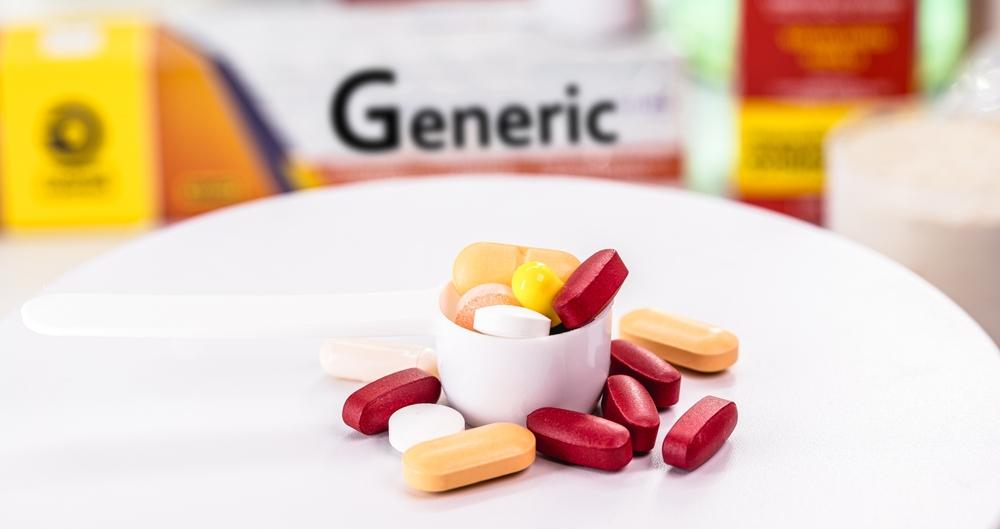Consumers Eligible for Compensation in Generic Drug Price-Fixing Settlement
Table of Contents
March 29, 2025
Consumers who purchased certain generic prescription drugs between May 2009 and December 2019 may be eligible for compensation following a significant settlement announced by Ohio Attorney General Dave Yost. The settlement, totaling nearly $50 million, aims to reimburse customers who were overcharged for more than 200 different drugs.
The settlement comprises a $10 million payment from Heritage Pharmaceuticals, based in New Jersey, and a $39.1 million payment from Apotex, headquartered in Toronto. This agreement was filed on December 15, 2016, in the U.S. District Court for the District of Connecticut. The two companies were accused of participating in a long-running scheme to artificially inflate and manipulate prices for numerous generic prescription drugs. Some of the affected drugs include clindamycin phosphate for acne treatment and hydrocortisone valerate cream for skin conditions.
“This was a conspiracy to cheat the system – we won’t tolerate collusion that inflates drug prices and harms Ohioans who rely on affordable medication,” Yost said. “We are working to restore fair competition and hold wrongdoers accountable.”
A coalition of attorneys general from nearly all states and territories filed three antitrust complaints against 30 corporate defendants and 25 individual executives. The timeline of these complaints is as follows:
- 2016: The first complaint included Heritage Pharmaceuticals, Apotex, and 16 corporate defendants, two individual executives, and 15 generic drugs.
- 2019: The second complaint targeted Teva Pharmaceuticals, Apotex, and 18 of the largest generic drug manufacturers in the U.S., naming 16 senior executives.
- 2020: The third complaint focuses on 80 topical generic drugs and names 26 corporate defendants and 10 individual defendants.
Evidence for these cases came from several witnesses, a database of more than 20 million documents, and millions of phone records showing the conversations of more than 600 sales and pricing executives in the generic drugs industry. The complaints detail a network of industry executives who secretly met at dinners, social gatherings, and on private calls to disguise illegal agreements.
Customers can check their eligibility by visiting the AG Generic Drugs website, calling 1-866-290-0182, or emailing [email protected].
Recent Developments in Generic Drug Price-Fixing Cases
In recent years, several significant settlements have been reached in cases involving price-fixing among generic drug manufacturers. Notably, in October 2024, Teva Pharmaceutical Industries Ltd agreed to pay $450 million to resolve allegations related to kickbacks and price-fixing. The U.S. Department of Justice announced that Teva used charitable donations to cover Medicare patients’ drug costs as kickbacks to boost sales of their multiple sclerosis drug, Copaxone, and conspired to fix prices on generic drugs. The settlements include $425 million to settle a lawsuit in Boston from a 2020 industry-wide investigation and a separate $25 million civil settlement. Teva did not admit wrongdoing and justified its donations as supporting patient access to medication. This settlement follows over $1 billion in resolved cases from the same investigation involving other drugmakers and charities. The lawsuit specifically alleges Teva paid over $350 million to foundations to cover Copaxone co-payments, significantly increasing the drug’s price during that period. ([reuters.com](https://www.reuters.com/legal/teva-agrees-pay-450m-resolve-kickback-allegations-us-justice-dept-says-2024-10-10/?utm_source=openai))
Additionally, in February 2025, Sandoz, a Swiss generic drug manufacturer, agreed to pay $275 million to settle claims by U.S. consumers and others who accused the company of price-fixing. The settlement, awaiting approval from U.S. District Judge Cynthia Rufe, is part of an antitrust case involving other drugmakers such as Pfizer, Teva, and Lupin, who have denied wrongdoing. Sandoz, while denying any wrongdoing, will cooperate with plaintiffs pursuing claims against these companies. The settlement concerns drug purchases between 2009 and 2019, including antidepressants and clobetasol. Plaintiffs’ attorneys anticipate the settlement class includes millions of members and have requested up to $91.6 million in legal fees and $26 million in expenses. Last year, Sandoz agreed to pay $265 million to settle related claims from wholesale drug purchasers. ([reuters.com](https://www.reuters.com/legal/government/sandoz-pay-275-million-settle-drug-price-fixing-case-2025-02-18/?utm_source=openai))
These developments underscore the ongoing efforts by state and federal authorities to hold pharmaceutical companies accountable for anti-competitive practices that have led to inflated drug prices, ultimately impacting consumers’ access to affordable medications.
Are ther ongoing investigations into generic drug price fixing?
Frequently Asked Questions (FAQ)
What is teh generic drug price-fixing settlement?
The settlement involves pharmaceutical companies, including Heritage Pharmaceuticals and Apotex, agreeing to pay nearly $50 million to resolve allegations of conspiring to inflate prices of over 200 generic prescription drugs between May 2009 and December 2019. This aims to reimburse consumers who were overcharged for these medications.
How can I determine if I’m eligible for compensation?
If you purchased certain generic prescription drugs between May 2009 and December 2019, you may be eligible for compensation. To check your eligibility, visit the AG Generic Drugs website, call 1-866-290-0182, or email [email protected].
Which drugs are affected by this settlement?
The settlement covers over 200 generic prescription drugs. Specific examples include clindamycin phosphate, used for acne treatment, and hydrocortisone valerate cream, used for skin conditions. A extensive list of affected drugs is available on the AG Generic Drugs website.
What other companies have been involved in similar price-fixing settlements?
Several pharmaceutical companies have faced similar allegations and settlements. Notably,in October 2024,Teva Pharmaceutical Industries Ltd agreed to pay $450 million to resolve allegations related to kickbacks and price-fixing. In February 2025, Sandoz, a Swiss generic drug manufacturer, agreed to pay $275 million to settle claims of price-fixing. These actions reflect ongoing efforts to hold pharmaceutical companies accountable for anti-competitive practices that have led to inflated drug prices, impacting consumers’ access to affordable medications.
How can I stay informed about future settlements and my rights?
To stay informed about future settlements and your rights, regularly check official communications from state attorneys general, the U.S. Department of Justice, and reputable news sources. Additionally,subscribing to newsletters or alerts from consumer protection organizations can provide timely updates on such matters.

